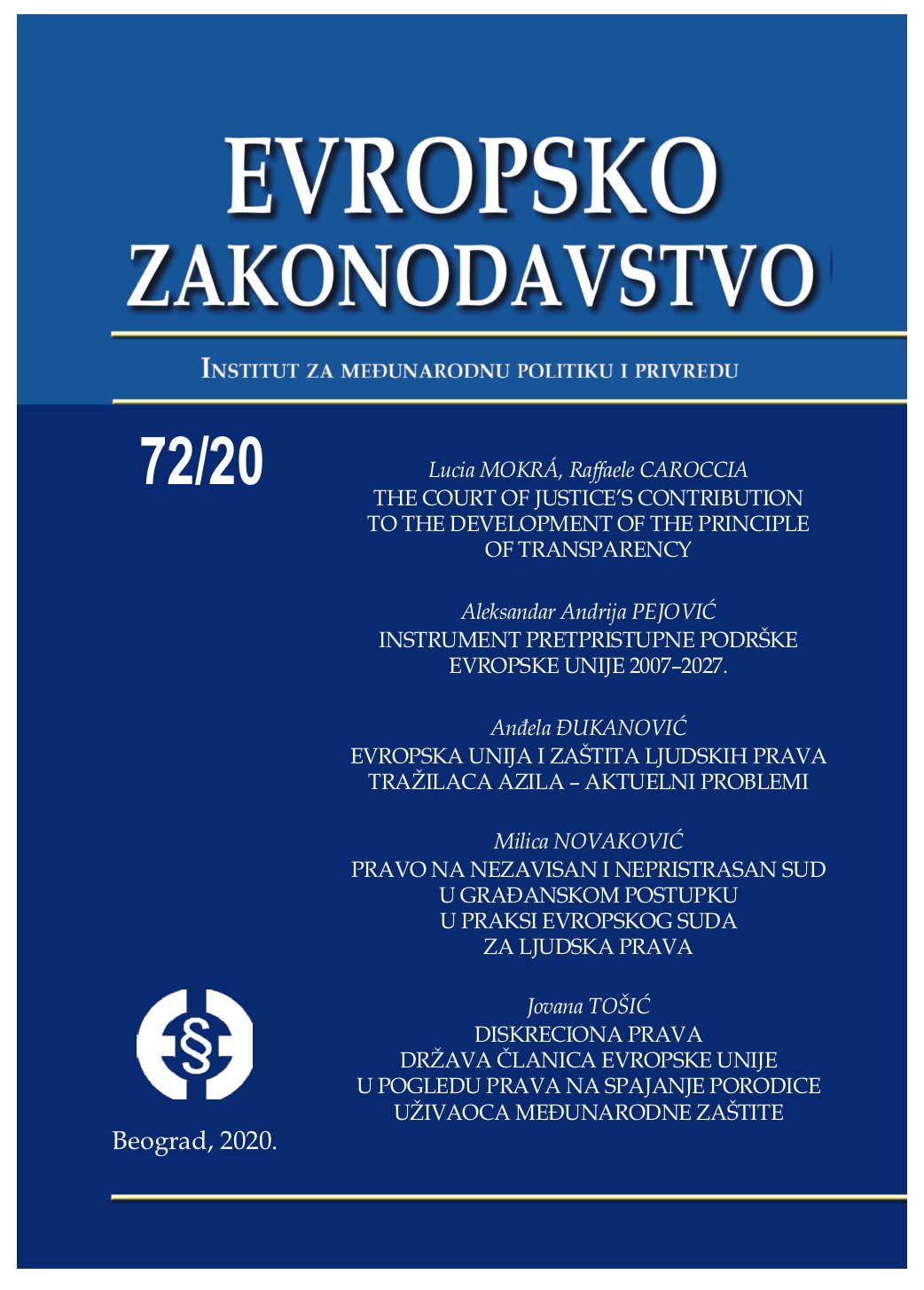Pravo na nezavisan i nepristrasan sud u građanskom postupku u praksi Evropskog suda za ljudska prava
Right to independent and impartial court in civil proceedings in the jurisprudence of the European court of human rights
Author(s): Milica NovakovićSubject(s): Law, Constitution, Jurisprudence, Human Rights and Humanitarian Law, EU-Legislation
Published by: Институт за међународну политику и привреду
Keywords: Eurpean Court of Human Rights; Court/Tribunal; independnce and impartiality;right to a fair trial, complaint be;
Summary/Abstract: Article 6 of the Convention for the Protection of Human Rights and Fundamental Freedoms (the European Convention) protects the right to a fair trial, which also encompasses the right to an independent and impartial tribunal. This guarantee of the right to a fair trial is enshrined in all international documents concerning human rights protection, while in the domestic legal order, it is one of the fundamental constitutional guarantees and is incorporated in procedural codes. The introductory part of this paper sets out the general features of Article 6 of the European Convention, as well as of the right to an independent and impartial tribunal, in order to individually analyze notions of court, independence and impartiality in the following three parts. The basis of this paper is the jurisprudence of the European Court of Human Rights (the European Court, the Court) in civil proceedings, as well as the jurisprudence of the Constitutional Court in the same field. The analysis of the European Court’s jurisprudence shows that besides acquiring the autonomous meaning of the notion of ‘court’, it also considers the constitutional principle of the separation of powers and independence of the judiciary when examining the independence of domestic courts, while in examining impartiality it also considers the specificities ofthe case at hand and the substantive right(s) in question. The analysis of the jurisprudence of the Constitutional Court indicates that the standards of the European Court regarding the underlying procedural guarantees have been successfully applied in the domestic practice. However, it is concluded that, although the approach adopted in the domestic civil procedure, in fact, enables the judges to participate in different stages of the civil proceedings between the same parties, both the jurisprudence of the European and the Constitutional Court suggest that the best solution for the judges would be to limit their participation in the proceedings in which there is a risk of doubt as to their impartiality to the greatest possible extent, so as not to impair the fairness of the civil proceedings in question.
Journal: Европско законодавство
- Issue Year: 2020
- Issue No: 72
- Page Range: 51-79
- Page Count: 29
- Language: Serbian

